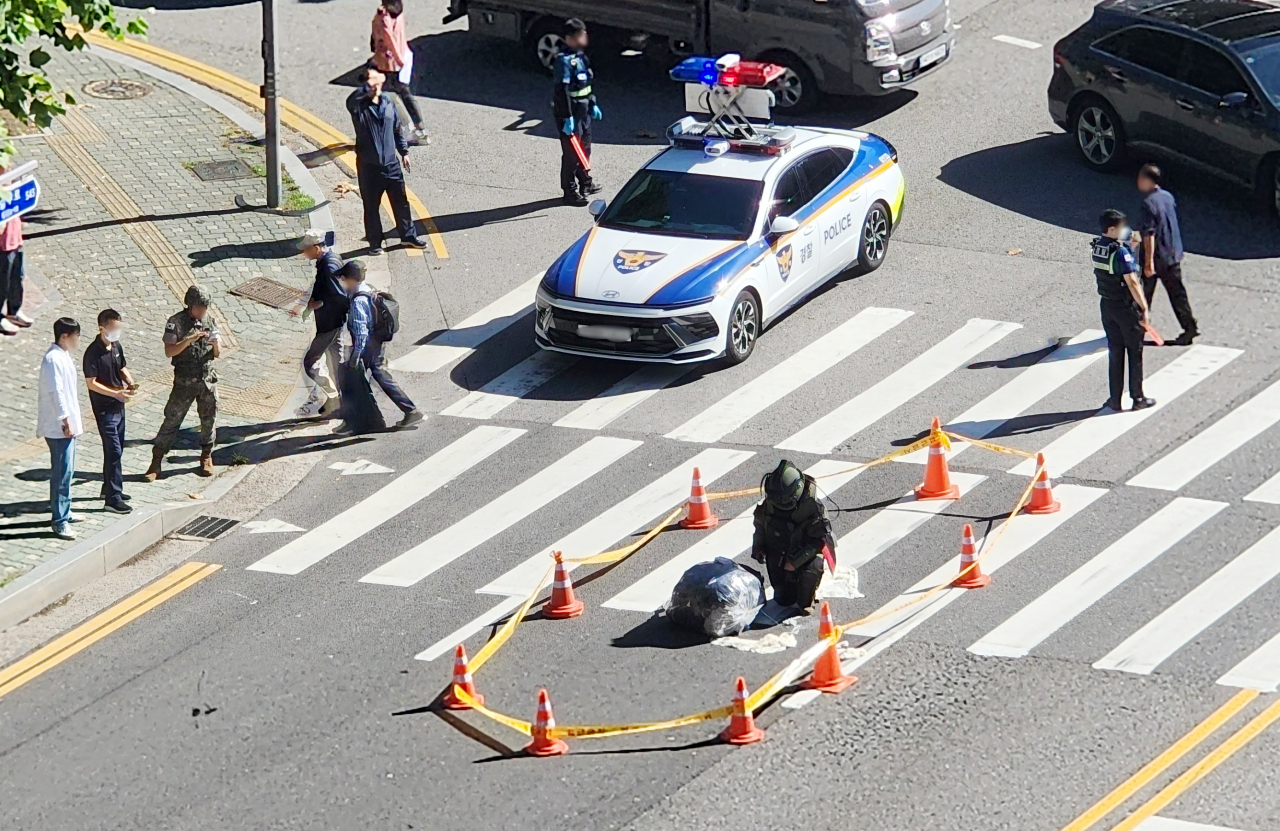
 |
| A South Korean military official examines North Korea's trash-filled balloon that fell in Incheon on Monday. (Yonhap) |
North Korea's trash-carrying balloons have disrupted runway operations at South Korea's two biggest airports for an accumulated 413 minutes this year, government data showed Wednesday.
Operations at Incheon International Airport and Gimpo International Airport were disrupted 20 times this year as of Monday, according to the Seoul Regional Aviation Administration data submitted to Rep. Yang Bu-nam of the main opposition Democratic Party of Korea. This first occurred at Incheon on June 1, when authorities closed two runways for 54 minutes from 10:48 p.m.
Air traffic authorities can close down a runway in the case of potential safety risks, which in this case has been balloons carrying waste sent by Pyongyang. The communist country has sent thousands of balloons southward since late May, in a form of retaliation against anti-North Korea leaflets sent across the border by South Korean activists.
The most recent disruptions took place Monday, when trash balloons forced shutdowns of Incheon International Airport's runways totaling 90 minutes. This marked the sixth such disruption at the country's largest airport.
On June 26, multiple runways at Incheon International were closed down on eight occasions, marking the longest disruption -- 166 minutes -- of airport operations this year due to the trash balloons.
Gimpo International Airport, located in Seoul and primarily dealing with shorter international routes and domestic flights, had to close multiple runways for the first time this year on Jan. 24. It banned planes from the runways for a total of 58 minutes that day over three occasions.
South Korea and its ally the United States on Tuesday reiterated the necessity of a coordinated response against non-military threats from North Korea, or so-called "gray zone" provocations. Seoul's Defense Ministry said the both countries share "deep concern" over the repeated launch of the trash balloons, and condemned Pyongyang's provocations and threats.









